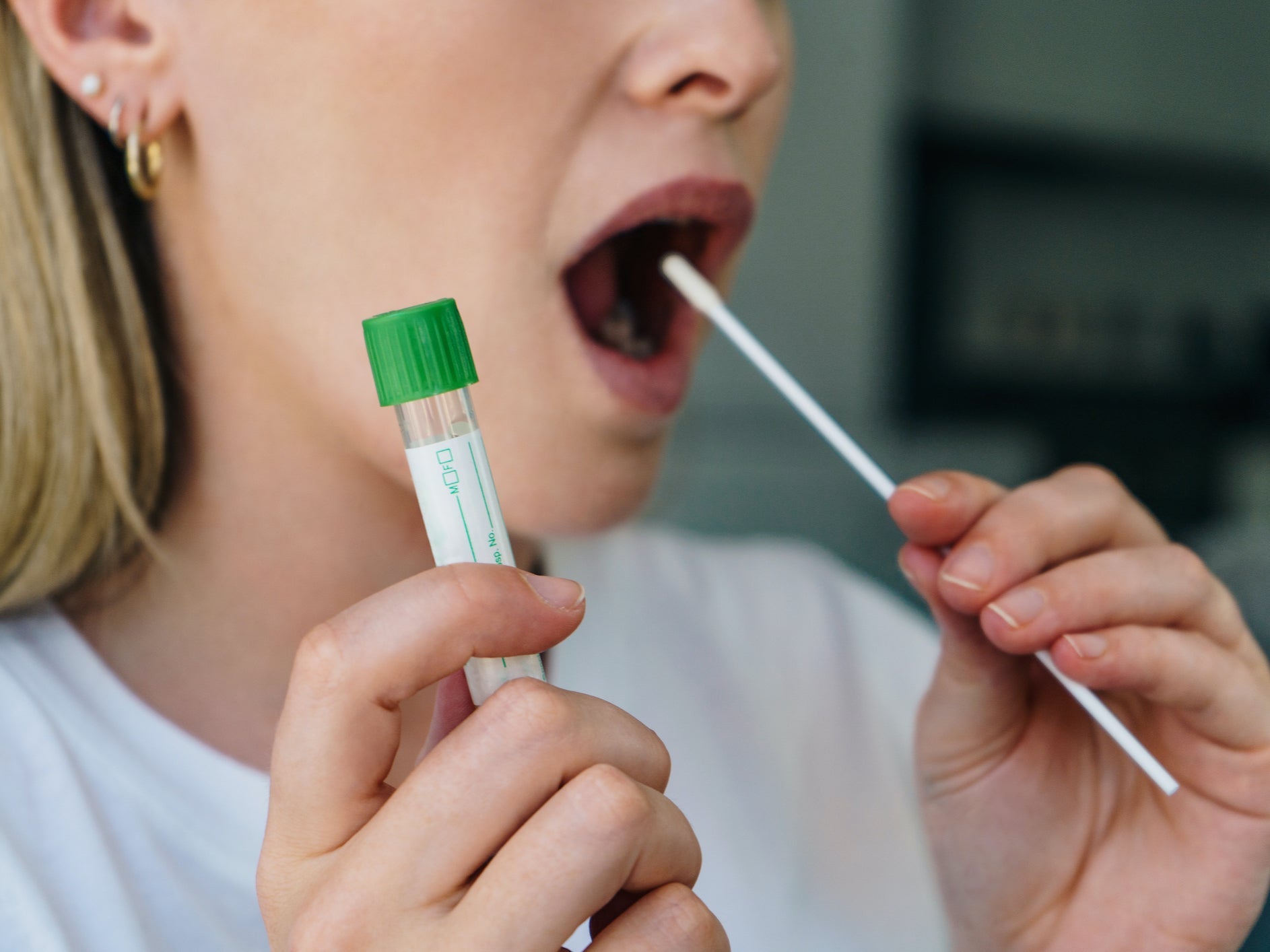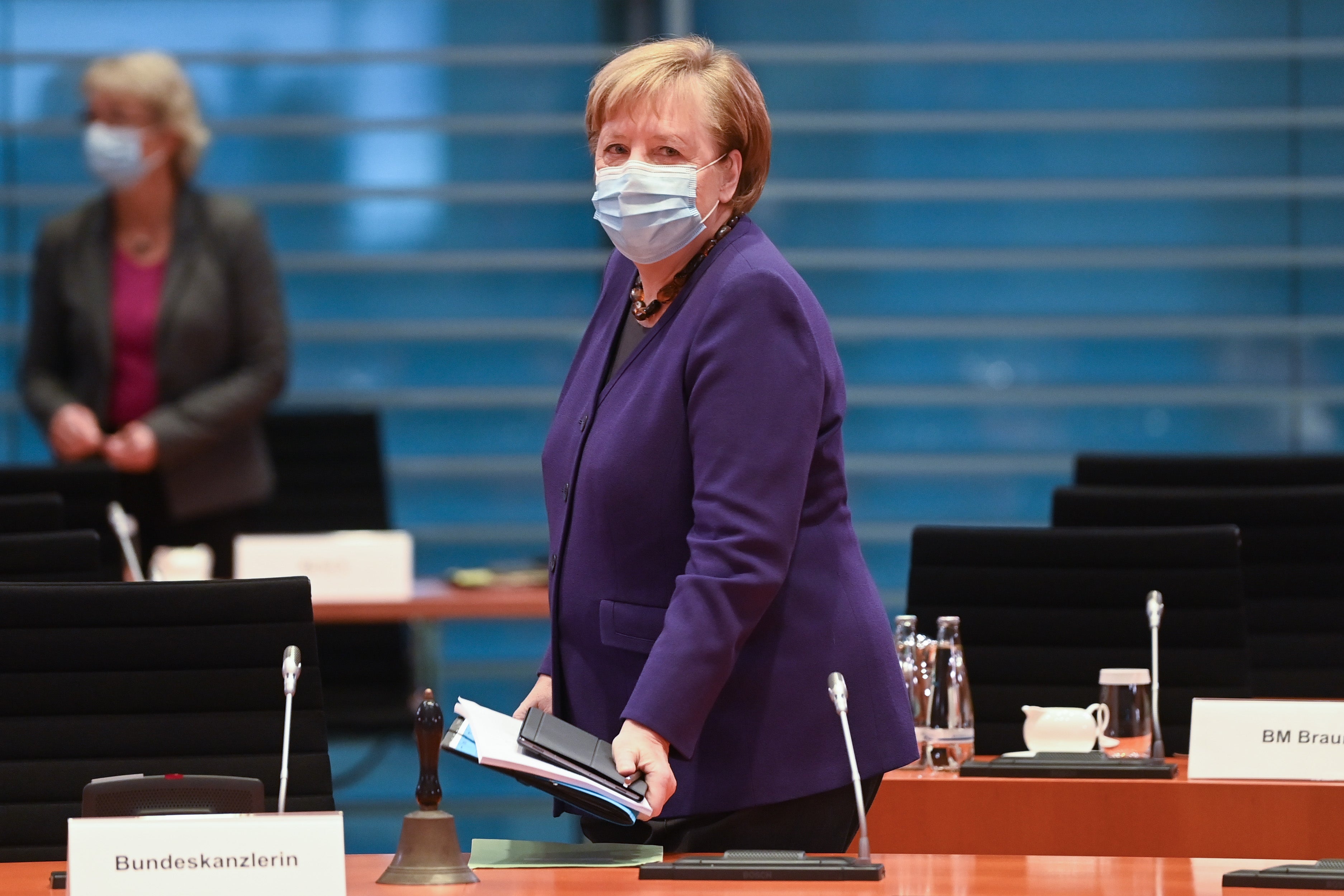Coronavirus news: Third wave could delay vaccine rollout as experts issue warning over Christmas plans
Follow the latest developments in the pandemic in the UK and worldwide
Your support helps us to tell the story
From reproductive rights to climate change to Big Tech, The Independent is on the ground when the story is developing. Whether it's investigating the financials of Elon Musk's pro-Trump PAC or producing our latest documentary, 'The A Word', which shines a light on the American women fighting for reproductive rights, we know how important it is to parse out the facts from the messaging.
At such a critical moment in US history, we need reporters on the ground. Your donation allows us to keep sending journalists to speak to both sides of the story.
The Independent is trusted by Americans across the entire political spectrum. And unlike many other quality news outlets, we choose not to lock Americans out of our reporting and analysis with paywalls. We believe quality journalism should be available to everyone, paid for by those who can afford it.
Your support makes all the difference.Relaxing tier restrictions could trigger a third wave of coronavirus this winter - and potentially hit the UK’s hopes for a return to normal by the summer, experts have warned.
NHS Providers, which represents hospital trusts, urged Boris Johnson to use "extreme caution" in moving any area of England to a lower tier when the measures are reviewed on Wednesday.
Chief executive Chris Hopson said: "We're about to hit our busiest time of year so people are really worried that if we relax the restrictions now the NHS simply won't be able to cope with all of the work that it needs to do in late December, January and February."
Meanwhile the Oxford vaccine’s lead scientist, Professor Sarah Gilbert, has warned that a Christmas-related surge in infections could delay the vaccination programme and have a “big impact” on the UK’s return to normal by the summer.
Elsewhere, Germany has confirmed a new lockdown will start from Wednesday, Italy now has Europe’s highest death toll after overtaking the UK last night, and the US is taking deliveries of the Pfizer vaccine ahead of the rollout on Monday.
Community testing rolls out to 67 areas from Monday
The government has announced the first wave of areas in England that will receive community testing.
From Monday 14 December, a total of 67 local authorities can launch community testing programmes to help curb the further spread of coronavirus.
So, what exactly is community testing, where can you get it and is it mandatory? Here is everything you need to know.

What is community testing and where can you get it?
‘Community testing is vital in helping to drive down infection rates’, says Matt Hancock
Vaccine rolls out to Scottish care homes
Residents of Scottish care homes will begin to receive the Pfizer coronavirus vaccine from Monday, the Health Secretary has confirmed.
NHS staff began to receive the jab on 8 December and so far more than 5,000 vaccinators and other key staff have had their first dose.
The focus is now on care home residents and staff, who are in the highest-priority group identified by a UK-wide committee.
The Scottish Government said a logistical solution had been reached to "pack down" the vaccine from its initial batches to smaller pack sizes which can then be brought into care homes for the elderly.
Pfizer's vaccine must be stored at minus 70C before being thawed out, however it can be transported in an unfrozen state for up to 12 hours.

Christmas surge will have ‘big impact on getting back to normal’
The lead researcher in the Oxford vaccine has said that a surge in Christmas infections means it will take much longer for the UK to “get back to normal”.
Professor Sarah Gilbert raised the example of the US, where the Thanksgiving holiday is thought to have contributed to the current record levels of deaths, at over 3,000 a day.
“If we have that kind of thing happening in the Christmas holidays its going to take so much longer to get things back to normal,” she told BBC’s Andrew Marr show.
“It’s not possible to run vaccination clinics when staff are off sick and there is a high transmission rate affecting people’s ability to come to vaccination clinics.
What we do over the next few weeks is going to have a big impact on on how long it’s going to take to get back to the normal. Hopefully we can be more or less back to normal by the summer but that’s not going to be possible if we start from a very bad position in January.”
‘Pretty high’ chances of Oxford vaccine rollout by end of 2020
The Oxford/AstraZeneca jab is highly likely to be available by the end of the year, according to the lead researcher Prof Sarah Gilbert.
When asked how many people needed to be vaccinated for life to return to normal, she told the BBC's Andrew Marr Show: "If we're trying to protect the most vulnerable, then in this country we're planning to immunise about 20 million people based on age and also the frontline healthcare workers.
"And that would really have a big effect on hospitals being able to go back to normal. That's not going to completely prevent transmission, but it should prevent the hospitalisations and severe cases.
"And then to reduce it in the community further we would need more people to be immunised, and it's going to be something that we get the data on as we start to see the vaccine rollout."
On the chance of people receiving the Oxford/AstraZeneca jab before the end of the year, she said: "I think the chances are pretty high. But we do need multiple vaccines, all countries need multiple vaccines, the world needs multiple vaccines and we need vaccines made using different technologies, if that's possible."
She said this was due to companies potentially encountering problems with the supply of raw materials as doses are produced, which could slow down vaccine rollout if other jabs are not available.
"So having multiple shots on goal, multiple irons in the fire, is what we really need," she added.
NHS bosses urge public to ‘think very carefully’ about Christmas plans
Here’s some more detail on that warning by NHS leaders to Boris Johnson over the review of the tier restrictions on Wednesday.
NHS Providers, which represents NHS Trusts across England, raises concerns that “the spread of the virus will quickly gather pace as soon as restrictions are relaxed, triggering a third wave of Covid-19 patients coming into hospitals just as the NHS enters its traditional busiest period.”
They also point to a slower decline in the number of patients compared to the first wave, with some areas seeing an increase.
“Trust leaders are therefore very worried about the task they face between late December and February as they try to balance large numbers of Covid-19 patients, the impact of increasing winter emergency pressures, planned care that can not be delayed any longer, and the new demands of the vaccination programme," NHS Providers add.
The letter sent to the prime minister also urges the public to “think very carefully" before organising extra social contact, particularly with vulnerable people, over Christmas.
Germany to enter new lockdown, Merkel announces
German Chancellor Angela Merkel has announced most shops will be ordered to shut starting on Wednesday, along with schools and daycare centers.
The new restrictions are expected to remain in effect until at least January 10 as the country grapples with a second wave of the pandemic.
However German states are still expected to ease Covid-19 restrictions during the holiday period from 24 to 26 December in order to allow family members to gather.

Germany to enter new lockdown, Merkel announces
Most stores, schools and daycare centers are expected to shut starting Wednesday
Japan delays restrictions as cases rise to record levels
Japan's government is facing pressure to impose tougher restrictions after daily coronavirus cases exceeded 3,000 for the first time.
The 3,030 new cases, including 621 in Tokyo, took Japan's national tally to 177,287 with 2,562 deaths, the Health Ministry said today.
Experts have urged authorities to take measures such as suspending out-of-town trips and requesting shops to close early.
Japan has managed to get through previous surges without a lockdown, although it issued a nonbinding state of emergency in the spring.
However recent media surveys show support ratings for Prime Minister Yoshihide Suga have dropped by about 20 percentage points during his first three months in office amid public discontent over his coronavirus handling.
Associated Press
ICYMI: Charley Pride dies of Covid aged 86
Country music’s first Black superstar Charley Pride has died from Covid complications.
Pride, 86, who was the first Black member of the Country Music Hall of Fame, died in Dallas, Texas on Saturday, his publicist confirmed.

Charley Pride, country music’s first Black superstar, dies from Covid complications
Dolly Parton paid tribute to one of her ‘dearest and oldest’ friends
Germany lockdown: No singing in church and fireworks banned
Here’s some more detail on Germany’s lockdown, which starts on Wednesday.
- Schools nationwide will be closed or switch to home schooling;
- Closure of non-essential shops and businesses such as hairdressers
- Restaurants closed except for takeaway
- Limits to five people meeting indoors
- Ban on sale of fireworks and public outdoor gatherings on New Year’s Eve
- Singing in churches banned
Bavaria's governor, Markus Soeder, said the ban on fireworks followed appeals from hospitals that they wouldn't be able to treat the large number of serious injuries that result from mishandled explosives every year.
The overall measures were necessary to prevent the number of new cases and deaths rising further, he said, adding: "We need to be careful that Germany doesn't become the problem child of Europe."
Employers will be asked to let staff work from home, where possible, for the next month.
Staff in nursing homes will be required to take COVID-19 tests several times a week, and visitors will also have to provide a negative test result before being able to see relatives in care.

Germany to enter new lockdown, Merkel announces
Most stores, schools and daycare centers are expected to shut starting Wednesday
US begins to distribute first vaccine
Workers at a Pfizer Inc factory in Michigan dispatched the first shipments of its Covid-19 vaccine shortly after 6.30am on Sunday - launching the largest and most complex vaccine distribution project ever in the United States.
A network television video feed from the facility in Kalamazoo showed masked workers removing pizza-boxed sized cartons containing vaccine vials from a freezer, and placing them in large, blue coolers, before these were boxed and labeled.
Workers clapped and whistled as the first boxes were moved toward waiting trucks.


Join our commenting forum
Join thought-provoking conversations, follow other Independent readers and see their replies
Comments